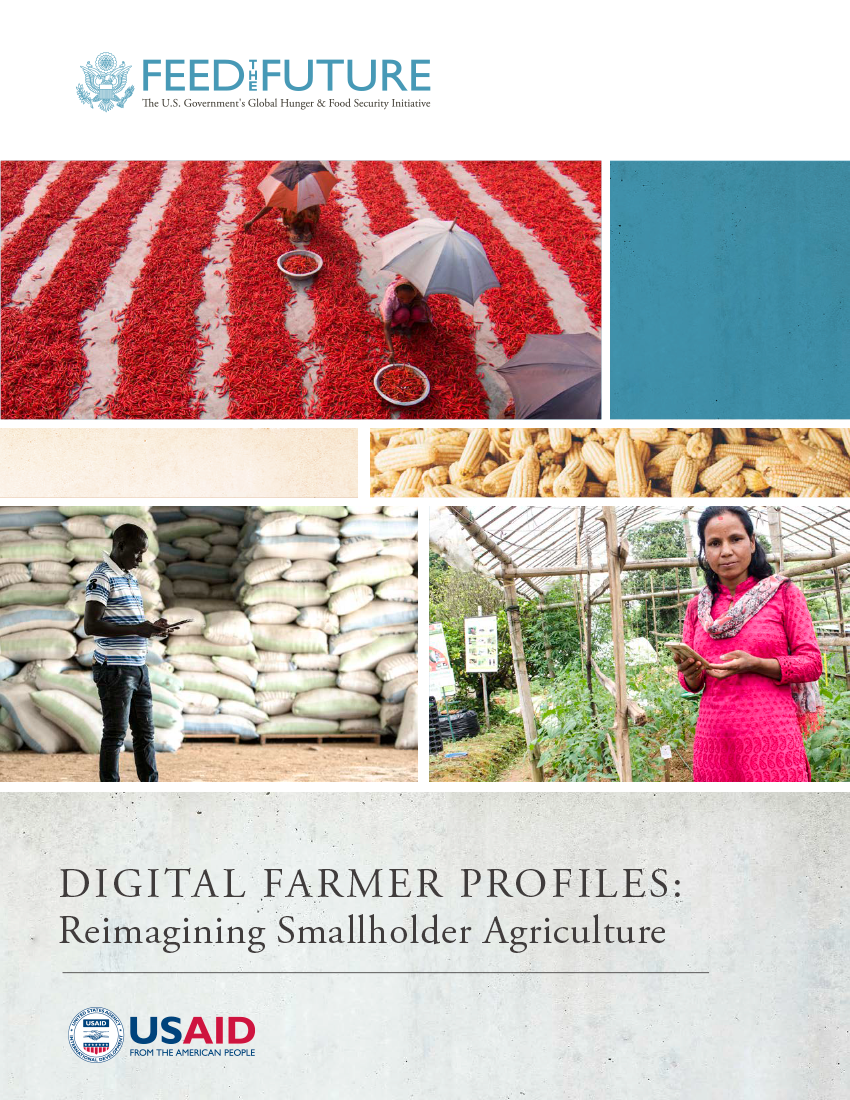- What We Do
- Agriculture and Food Security
- Democracy, Human Rights and Governance
- Economic Growth and Trade
- Education
- Environment and Global Climate Change
- Gender Equality and Women's Empowerment
- Global Health
- Humanitarian Assistance
- Transformation at USAID
- Water and Sanitation
- Working in Crises and Conflict
- U.S. Global Development Lab
Speeches Shim
More than 500 million smallholder farms worldwide play a significant role in food production and the genetic diversity of the food supply. Until now, it has been difficult to get information to or from smallholder farmers, compounding basic infrastructural problems such as access to inputs, markets, financing, and training. The spread of mobile technology, remote-sensing data, and distributed computing and storage capabilities are opening new opportunities to integrate smallholder farmers into the broader agri-food system. The scale of these changes holds out the potential for another agricultural revolution.
As mobile technology use increases and improves in rural areas, the paradigm is also shifting for how smallholder farmers are profiled, how their needs are understood and met, how the impact of agricultural services is measured, how farmer data is shared, and how a global body of knowledge can be built by drawing on typically siloed expertise and data. To help describe this shift in farmer profile data management, Grameen Foundation conducted a landscape assessment that:
- Documents experiences in managing digital farmer data by describing how smallholder farmers are defined, the types of service providers that collect farmer profile data, how data is collected, analyzed, and used to support smallholders with products and services, and how this data is shared and managed.
- Highlights innovative models of smallholder farmer data management and sharing to inspire new thinking among actors in this space.
- Outlines key considerations when assessing existing or investing in new efforts to develop and leverage farmer profile data.
Over a three-month period, Grameen Foundation conducted a desk review of the existing literature, including peer-reviewed journal articles, project and program reports and presentations, blogs, and information provided on websites. Grameen Foundation also conducted approximately 50 key informant interviews with service providers,1 including mobile network operators (MNOs), agribusinesses, government, research firms, technical assistance providers, donors, and other actors. These service providers were assumed to provide a valid representation of current farmer data management practice. Grameen Foundation also participated in the ICTforAG 2018 and Data Driven Agriculture: The Future of Smallholder Farmer Data Management and Use workshop in summer 2018, the latter organized by USAID funded and FHI 360 lead Mobile Solutions, Technical Assistance and Research (mSTAR) project, to gather additional input from technical specialists in the area. This landscape assessment was meant to capture different contexts and stakeholders but not to be exhaustive. The insights collected are meant to guide development organizations, USAID, and other donors in using these models in their everyday operations or in project design.


Comment
Make a general inquiry or suggest an improvement.